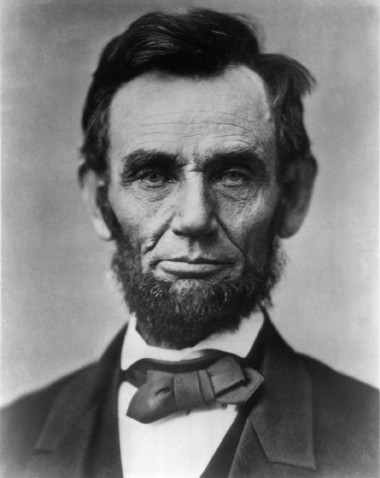By the Numbers
103: The number of megawatts of wind power now installed in Massachusetts, up from 3 megawatts in 2007. Last month, the state approved 12 new contracts for on-shore wind power from Maine and New Hampshire that will add a total of 409 megawatts to the commonwealth’s existing wind power by 2016. According to the state Department of Energy Resources, the new wind power will reduce greenhouse gas emissions by an estimated 6.7 million tons, and will bring a percentage of the money that now goes for fuel from other regions and countries back to New England.
$16,430: The average annual cost to a family with an infant in a childcare center in Massachusetts—the highest in any state—according to a new report from Child Care Aware of America. Families with infants in a family daycare spent $10,302 a year.
Of the People, By the People, For the People
Try reading this aloud: “Four score and seven years ago our fathers brought forth on this continent a new nation, conceived in liberty, and dedicated to the proposition that all men are created equal.”
Got it? Great—now do it again this weekend at the Springfield Armory National Historic Site, to mark the 150th anniversary of Abraham Lincoln’s dedication speech for Soldiers’ National Cemetery in Gettysburg, Penn.
Part of a national celebration of the sesquicentennial of the Gettysburg Address, the Springfield event, which is free, runs from 1 to 5 p.m. on Sunday, April 6. It begins at the Armory museum at 1 Armory St. with Civil War tours by park rangers, blank-shooting demonstrations of period rifles, and public readings and recitations of the 272-word speech to be recorded by WGBY. At 3:30 p.m., the celebration moves to nearby Scibelli Hall at Springfield Technical Community College for a performance by the Community Music School of Springfield; a preview of Ken Burns’ new documentary, The Address, about the Greenwood School in Putney, Vt., where each year kids memorize and recite the speech; and a group reading of the address.
For more information. call 413-734-8551 or go to www.nps.gov/spar.
Science for People, Not for Politics, Not for Profit
What are the scientific foundations of social justice and human wellbeing?
What does science have to tell us about climate change, food and agriculture, race and gender (are distinctions based on race and gender as valid as we think?) and military issues (such as biological warfare)?
How do various political interests use and even distort science to their advantage?
Explore these and other urgent issues at Science for the People: The 1970s and Today, a three-day conference (April 11-13) hosted by UMass-Amherst’s Social Thought and Political Economy Program.
A particularly exciting feature of the conference will be a panel on the militarization of science, which will include presentations by Frances Crowe, longtime leader of the local American Friends Service Committee, on the campaign to halt anthrax research at UMass in 1989; MIT professor Jonathan King on resisting biological weapons; doctoral student Derek Denman on the current movement in opposition to drone research at Johns Hopkins University; and scholar Elke Heckner on the militarization of PTSD, an issue that touches on—among other things—the ethics of using therapy to get people back to the battlefield rather than getting them permanently healed.
Conference events, except for dinners, are free and open to the public. The first public event, “Science for the People: Stories From the Movement,” in which longtime members of the group Science for the People will answer questions from UMass students, takes place Friday, April 11 at 7 p.m. in Thompson 102, UMass. For more information about events, times and locations, check science-for-the-people.org/program.
Worth Quoting
“[T]he current minimum wage is insufficient to support and uphold the dignity of individuals and families. … We do not pretend to be economists, and thus leave it to those more knowledgeable in that area to determine a just wage for the lowest-paid workers. In determining that level of compensation, the concerns of small and family-owned businesses must be considered as well. These businesses are naturally less able to absorb the costs of such a wage increase, unlike larger businesses that may adapt more readily. Regardless, the costs for the basic necessities of life continue to escalate year after year. Low-income families are the hardest hit by these ever-increasing costs. It is the belief of the Catholic Bishops that a raise in the minimum wage is an important step towards fairness and justice and we urge the legislature to address this growing concern this session.”
From a recent statement from the Roman Catholic bishops of Massachusetts, including the Rev. Timothy A. McDonnell of the Springfield Diocese



